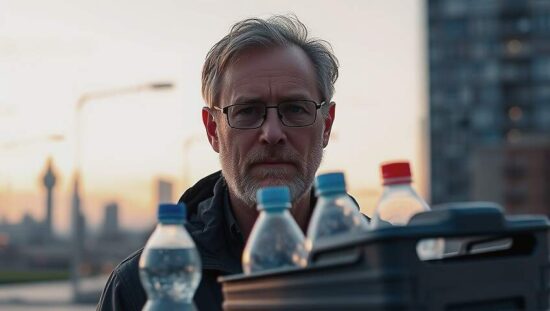German actor Bjarne Mädel is acutely aware of his privileged life. In a recent interview with the Redaktionsnetzwerk Deutschland, he expressed his gratitude, saying, “I’ve been asking myself, why does it go so well for me? What have I done to deserve not to have to suffer from war and hunger?” He acknowledged that his life has been particularly fortunate in recent years, saying, “It’s really meant well for me, fate-wise.”
However, Mädel does not always get to simply enjoy his good fortune, as he often feels a pang of guilt, confessing, “I would feel better if it went well for everyone the way it does for me. Sometimes I have a bad conscience when it goes well for me.” His comments also touched on societal criticism, as he lamented the tendency of people to turn a blind eye to the problems of others, saying, “As a trend, the tendency of verdrängung (denial) in society is already a general consensus.”
He pointed out that it is difficult to ignore the suffering of others, using the examples of the wars in Gaza and Sudan, saying, “It’s hard to continue one’s daily life carefree when one really looks at it. Of course, there’s also an egoistic aspect to this, when one says, ‘I have to function tomorrow, I have to go to the office or to rehearsal, I can’t burden myself with the suffering of others right now.'” He emphasized that it is ultimately about human lives being destroyed and that it is selfish to only focus on one’s own well-being.
Mädel also addressed the issue of climate change, criticizing the lack of action by politicians, saying, “The government should simply ban certain things. Why are there still so many plastic water bottles?” He argued that if people were presented with the choice and the plastic bottle were cheaper and lighter, it would be clear what would happen. “The government is called upon to limit the options” he said.
In a moment of self-reflection, Mädel acknowledged that he, too, is part of the problem, saying, “Through our standard of living, we basically burden the climate. I’m not an outsider and, therefore, part of the problem.” At the same time, he advocated for a responsible and conscious use of resources, concluding, “If I can afford it, it’s my responsibility to buy fair and, if I eat meat, at least not to eat cheap meat from mass animal husbandry.





